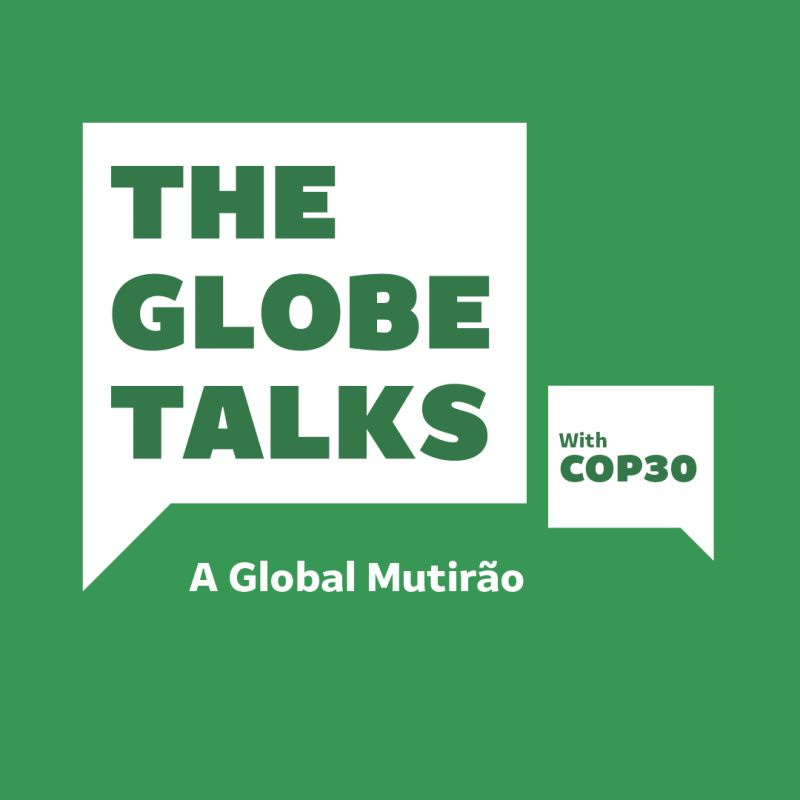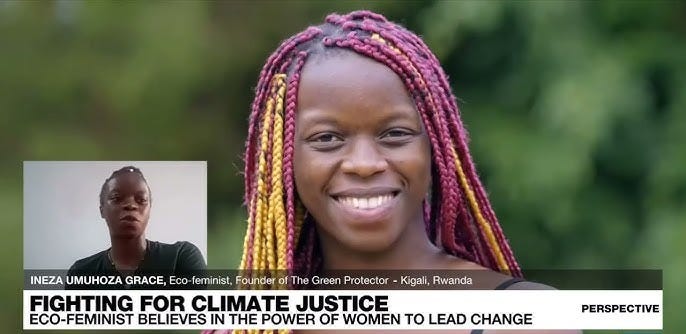This Saturday the Globe hosted a special gathering as part of COP30 - a Global Mutirão - to mark the incoming presidency, ahead of the The 2025 UN Climate Change Conference (UNFCCC COP 30), The tagline for the Mutirão was “Come as you are and do what you can.”
The term "Mutirão" is a Portuguese word, rooted in Indigenous Tupi-Guarani language, signifying a collaborative effort where people come together to work on a shared task and support one another.
It was an extraordinary event with international speakers, discussing themes of climate justice, the importance of community, reforesting minds, and belonging. For many, the terrifying effects of climate change are not a problem for the future - people across the globe, especially poorer, rural communities in South America, Africa and Asia are already living with frequent floods, wildfires, erosion and deforestation caused by climate change every day, yet have the least responsibility for causing it.
And this also rings true closer to home - Mete Coban, London Deputy Mayor for Environment & Energy, spoke passionately about the fact that London is the greenest city in the world, but what does that matter if a high percentage of working class children in the city are so affected by the terrible air quality that they are never able to use their lungs to the fullest extent? What does it matter if access to those green spaces is a luxury?
Ineza Grace Umuhoza, from Rwanda, shared a beautiful illustrated video and spoke about how she experienced terrifying flooding in her home at 5 years old, and called out the framing of the conversation as if climate change is a future issue. It’s not. It’s happening now. We’re already late to act.
Approaching climate justice as a global Mutirão, as a concept is brilliant. It feels accessible in a way that climate conversations often don’t, because it’s about belonging, about what we can do together, and about respecting different views and approaches to truly diversify the thinking around how to tackle climate change.
The Mutirão speaks to lots of ways we already work collectively in the arts, and offers ways we could develop further into a more inclusive and impactful collaborative approach to making art and making change.
Some points that really stuck with me from the day:
The community must be involved with decisions about change
Mete Coban (Deputy Mayor of London) spoke about growing up in Hackney in London from the 90s in a family of asylum seekers, and about the changes his community have seen in the area. He said that it felt like a lot had “been done” to Hackney and the community, without engaging or involving them in what was happening locally.
Ideas for positive change will come from the community.
Lennon Medeiros (CEO of Visão Coop) works with communities affected by climate change and one of the things his organisation do is to use tech to support the fight back against polluting corporations. He spoke about the fact that many of the solutions come from communities dealing with the impacts of the pollution and climate change daily. People affected have brilliant ideas about how to address the issues they face, but often lack the investment or support to make them happen.
How do positive ideas and beliefs from micro-cultures or subcultures crossover into the mainstream?
The conversation was so galvanising, and the passion, commitment and brilliance in the room was palpable - I left wondering about how an issue like climate justice, which is already affecting all of us, isn’t more “mainstream”… why did this event feel like an insight into a brilliant vibrant sub-culture or micro-culture, rather than being part of our common sense, every day thinking.
These points and questions have also made me start thinking about other areas of my work and how it might be possible to apply the ethos of the Mutirão across the board. In the work I’m doing around artist development, how do I make sure I’m not imposing my own ideas and approach artists and instead make sure I’m working with people I want to support to develop resources and connections that are meaningful and impactful for them?
At the Globe, as we enter into a new chapter, start work on an exciting new strategy, and begin work on changing our organisational culture, how do we make sure the diverse views and knowledge across the organisation are honoured and included, and that we are engaging and involving the staff, freelancers and volunteers in any change, rather than things “being done” to them?
Most importantly, I want to use the idea of the Mutirão to take action on climate change and make this consideration and action part of my day to day life. It’s not enough for the arts and culture sector to stand by people on the front lines of climate action and say “we’re storytellers - tell us how to help”. We need to take action ourselves in our own communities and spheres of influence, as well as working collectively and collaboratively with a whole host of people from a huge range of disciplines to make the impact as significant as possible.
We need to not rely on others to tell us the answers but to do the work ourselves, so we can contribute and play an active part in the Mutirão; to “come as we are and do what we can”.







